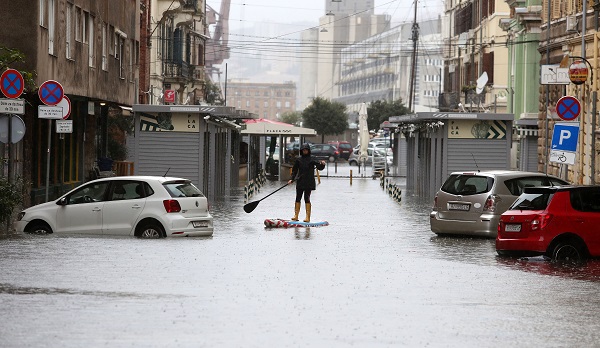New York, Extreme weather could bring next recession, say researchers, adding that despite obvious market risks brought by fires, floods and other events, asset managers are slow to react.
According to the study, published in the journal Nature Energy, current financial markets do not account for the risk posed by horrific natural disasters such as floods and droughts.
As a result, investors are at risk of a sudden correction and crash which devastates the global economy unless action is taken to mitigate its impact.
“If the market doesn’t do a better job of accounting for climate, we could have a recession — the likes of which we’ve never seen before,” said study author Paul Griffin from University of California in the US.
The central message in his latest research is that there is too much “unpriced risk” in the energy market.
“Unpriced risk was the main cause of the Great Recession in 2007-2008,” Griffin said
“Right now, energy companies shoulder much of that risk. The market needs to better assess risk, and factor a risk of extreme weather into securities prices,” he said.
For example, excessive high temperatures, like those experienced in the US and Europe last summer, can be deadly.
Not only do they disrupt agriculture, harm human health and stunt economic growth, they also can overwhelm and shut down vast parts of energy delivery.
Extreme weather can also threaten other services such as water delivery and transportation, which in turn affects businesses, families and entire cities and regions, sometimes permanently. All of this strains local and broader economies.
“Despite these obvious risks, investors and asset managers have been conspicuously slow to connect physical climate risk to company market valuations,” Griffin said.
Climate-vulnerable locations also factor into risk for energy markets. In the US, US oil refining is located on the Gulf Coast, an area exposed to sea-level rise and intense storms.
Oil refining in Benicia and Richmond, in Northern California, can be exposed to coastal flooding.
Energy companies’ transmission infrastructure is located in arid areas, increasing risk of damage, such as the destruction from recent wildfires in California.
“The climate litigation risk already priced into energy stocks (after, for example, a protracted ExxonMobil court case in the 1990s) would prove insufficient,” Griffin said.
“While proprietary climate risk models my help some firms and organisations better understand future conditions attributable to climate change, extreme weather risk is still highly problematic from a risk estimation standpoint,” he concluded










